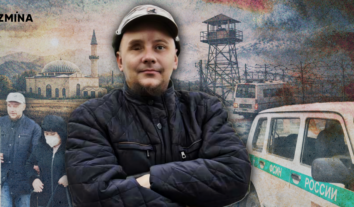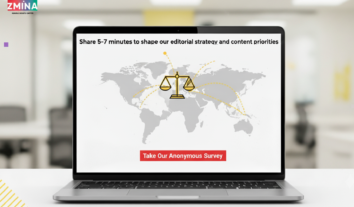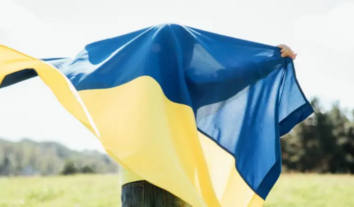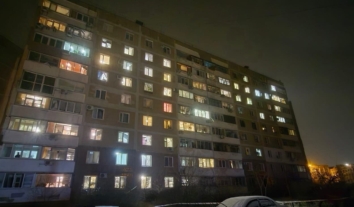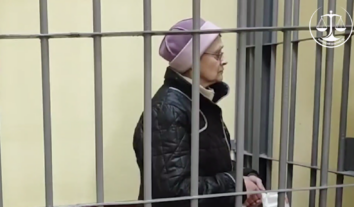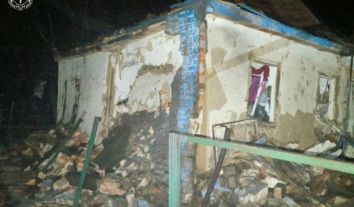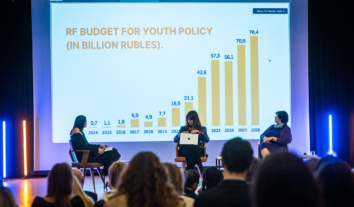Human rights training for women in Bulgaria
The Institute is a unique education and training programme founded in 2004 and is the first-of-its-kind advanced training programme aimed at building and developing the capacity of young lawyers from Central and Eastern European Europe and the Newly Independent States (CEE/NIS) for litigation on women’s rights issues, including:
- violence against women and domestic violence,
- sexual and reproductive health and rights, and
- social and economic rights, and employment discrimination,
- multiple discrimination.
The WHRTI provides the participants advanced and in-depth knowledge and practical exercises on women’s human rights protection in the four main areas noted above. The WHRTI improves their practical skills in legal writing and advocacy (in English) for development of strategic litigation in the region both at the national and international levels through the use of regional and universal human rights mechanisms such as the European Convention on Human Rights (ECHR), the UN Convention on the Elimination of All Forms of Discrimination against Women (CEDAW), and the Optional Protocol to CEDAW as well as the International Covenant on Civil and Political Rights (ICCPR) and the Optional Protocol to ICCPR. The WHRTI also gives lawyers an opportunity to get acquainted with the EU standards in the field of equal treatment of women and men, including the relevant case law of the Court of Justice of the European Union.
Eligibility:
Twenty five participants will be selected among practicing lawyers and legal counselors working with human rights or women’s rights NGOs in the region. Successful applicants should:
- have a substantial and sustainable professional interest and a demonstrated commitment to women’s human rights advocacy and/or litigation, and in using the legal instruments and litigation creatively to secure redress for women’s rights violations;
- have a professional relationship/affiliation for at least one year prior to the application with an institution/organization that has capacity to litigate women’s rights cases or has experience with litigation and preferably focuses in her/his work on women’s human rights;
- have demonstrated interest and at minimum some basic legal knowledge and understanding of the international universal and the regional human rights law, legal standards and instruments,
- be committed and available to actively participate in all the three sessions of the Institute (approximately one week every six months) and to be involved in the intersessional work;
- have fluency in written and spoken English, and advanced English language comprehension.
Application procedures:
The completed WHRTI application form and all supporting documents (see the application form for details) must be sent to the Bulgarian Gender Research Foundation (BGRF) by 13 July 2018, to the following e-mail address: office@bgrf.org.
The applicants short-listed for an interview will be contacted by 24 August 2018.
The interviews with the pre-selected applicants will be held online by a representative of the WHRTI team.
The final selection will be done by 20 September 2018.
The First session of the WHRTI 7 is planned to be conducted within the period 15-25 November 2018.
About the Institute:
The overarching objectives of the Institute are to:
- develop successful regional and country level litigation strategies on women’s human rights in CEE/NIS.
- build the capacity of lawyers in CEE/NIS to litigate women’s human rights cases at the national, regional and UN levels.
- provide continuous support and expertise for women’s rights litigation efforts of lawyers in CEE/NIS and seed new women’s rights litigation.
- strengthen the network of lawyers for women’s human rights’ strategic litigation in the region.
The WHRTI relies on a three-prong approach focusing on the developing jurisprudence in the above mentioned fields of women’s rights.
The WHRTI takes place in Bulgaria.
Training conditions:
WHRTI will consist of three sessions that are scheduled approximately every six months. The first session will last 8 training days and will be focused on theoretical lectures, presentations and discussions on the development of legal feminist theories, establishment of the relevant regional and universal norms and standards, and the available legal remedies at regional European and universal level. The second session will last 5 training days and will be focused on practical exercises with the implementation of the European Convention on Human Rights and Fundamental Freedoms – Moot Court Session. The Third session will also last for 5 days and will provide the participants the opportunity to exercise their practical legal skills addressing the UN treaty bodies on a variety of legal issues affecting women disproportionately and especially the UN CEDAW Committee.

The first session is predominantly theoretical. It also includes brief practical exercises and tasks.
The last two sessions are designed as moot-court sessions consisting of team work on hypothetical cases “brought” before the European Court of Human Rights, the CEDAW Committee and the UN Human Rights Committee.
The Institute participants will be trained to examine and apply existing legal theories that are currently applied to women’s human rights violations, including anti-discrimination legal theories and multiple/ intersectional discrimination of women, to participate in the multiple challenges posed by developing new legal theories in the field of women’s rights and to discuss their potential success in practice.
The team of lecturers and facilitators comprises well-known professors, experts, and experienced legal practitioners from Central and Eastern Europe, the United States and Western Europe specialized in the topics of violence against women, reproductive rights and employment discrimination and have expertise on various aspects of the use of the international and regional human rights mechanisms for the protection of women’s rights. The alumni of the WHRTI are also involved as lecturers and facilitators.
Specific litigation activities and editing thematic legal research editions on women’s rights issues will be both continued and launched by Institute and will involve the participants between the sessions, and will be additionally supported by the BGRF and other partner organizations, by members of the network of lawyers – fellows of the WHRTI.
The working language of the Institute is English, and this includes preparatory work, reading materials, training sessions, research tasks and intersessional assignments, and communication.
The same group of participants will be trained and will work together for a period of approximately 20 months.
There will be possibility for joint work and cooperation of WHRTI-7 with Sofia University “St. Kliment Ohridsky”.
WHRTI encourages the development of professional connections and networks among women’s rights lawyers in the region. Alumnae of the Institute include over 120 lawyers from Albania, Armenia, Azerbaijan, Bosnia and Herzegovina, Bulgaria, Croatia, Cyprus, France (observer), Georgia, Germany (observer), Hungary, Ireland (observers), Latvia, Lithuania, Macedonia, Moldova, Poland, Romania, Russia, Serbia, Slovakia, Slovenia, Spain (observers), Sri Lanka (observer), Sweden (observer), Tajikistan, Turkey, Ukraine, Uzbekistan and Zimbabwe. The alumnae of the Institute have established a network of women’s rights lawyers and are at the forefront of teaching, litigating and advocating on women’s rights in their countries. Some of them have already undertaken women’s rights litigation before the European Court of Human Rights and under the OP CEDAW Committee.
Organization and Planning of the training:
All the three sessions will be announced at least three months in advance in order to allow the participants to make their preparatory work and travel planning for the session.
All the intersessional reading materials, assignments and tasks will be distributed among all the participants at the same time and all the deadlines will be the same for all of them.
The participants will be provided with expert training mentors to help them during their training and for the preparing of their individual tasks.
All the logistic issues are arranged and coordinated by the BGRF staff and participants will be able to refer all their logistic questions, issues, demands or suggestions to them at any time. Participants are kindly advised to contact the organizers in due time whenever an issue related to their participation and/or completion of the training tasks occurs.
Financial conditions:
The expenses related to the selected participants’ attendance in all the three sessions of the Institute are covered by WHRTI as follows:
- Tuitions fees: for the participants who have been selected and who are fulfilling their training tasks in due time.
- Travel costs: airplane/train/bus tickets from the country of residence at the time of selection to and from Bulgaria – reimbursement is based on the original receipts, tickets, boarding passes;
- Transfer from and to the airport/railway station/ bus station at arrival and departure;
- Hotel accommodation: for the days of the training sessions – in shared rooms for two participants;
- Full board meals, including coffee breaks/or equivalent per diems for the days of the training sessions according to the announced agenda;
- Training materials and additional literature related to the training curriculum of WHRTI.
The programme has been implemented so far thanks mainly to the generous support of Open Society Institute-Budapest, the Sigrid Rausing Trust, and also of Equality Now, the Center for Reproductive Rights, the ESCR-Net, the Global Fund for Women, and other supporters.

